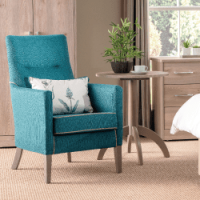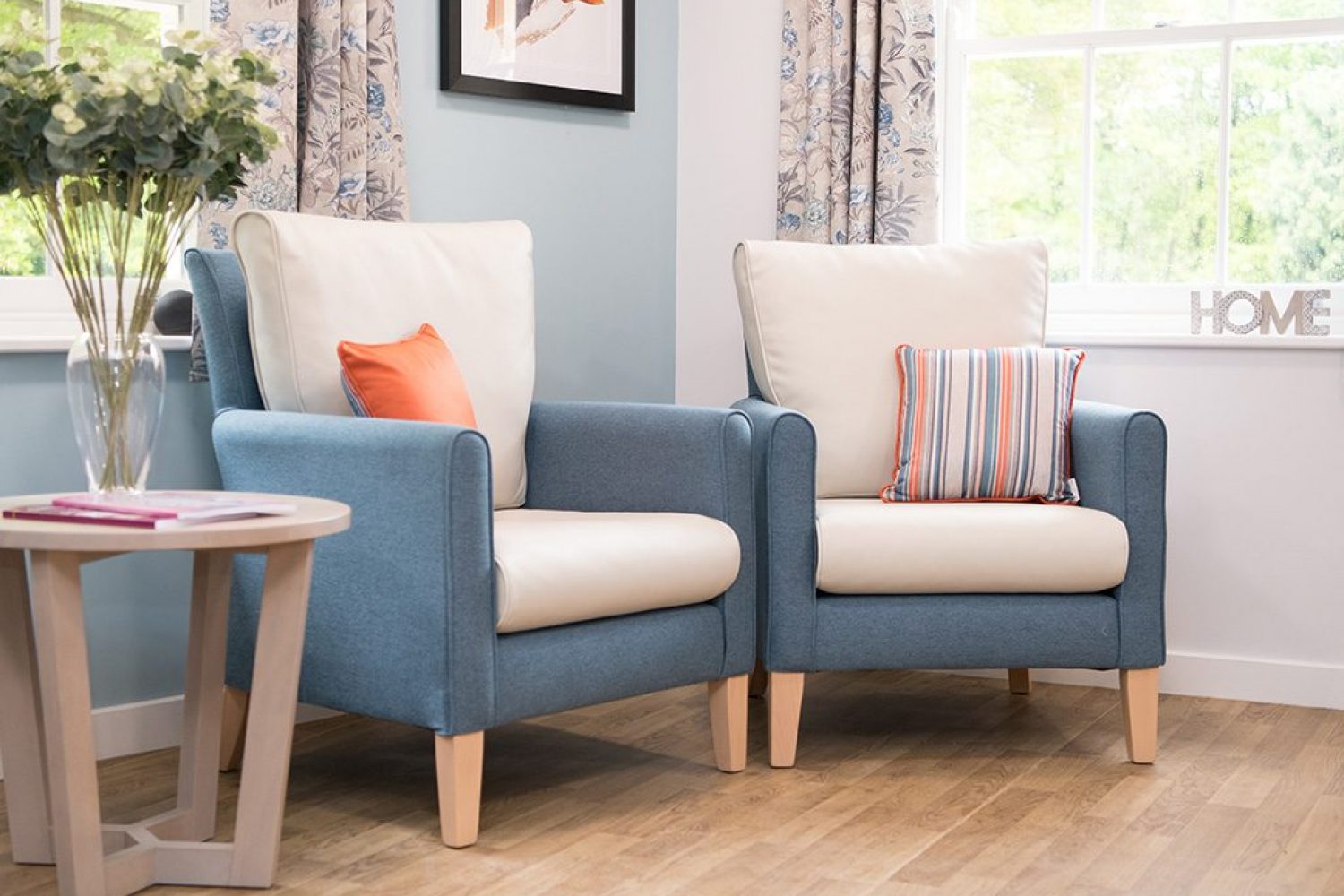- Article
- Mike Goldwater
The senior team at Furncare has been strengthened by the appointment of Paul Brummitt in the key role of Logistics Manager. Having risen through the ranks at his previous firm during his twenty three
A premium collection of complete room packages designed from the ground up specifically for nursing and care homes.

A premium collection of complete room packages designed from the ground up specifically for nursing and care homes.


In an ageing society, the provision of quality residential care services with a dementia friendly environment is rapidly becoming one of the great challenges of the age.
Achieving an environment that supports residents’ disabilities and reduces the level of assistance needed from staff is something we are striving for. Supporting independence through the provision of suitable furniture for care homes means more free staff time.
Independence for residents = More staff free time = Improved social interaction.
One of the strengths of people with dementia is the lifetime of memories that can be accessed and enjoyed if they are presented with opportunities to share them. Social dining for example, can provide meaningful exchange of memories that are associated with positive values and good experiences.
Residents’ bedrooms are private spaces that should reflect the person’s particular culture, preferences and needs. At best, an individual will perceive their bedroom as their own personal home. Unlike other parts of the care home, which are shared, there is an opportunity for the person to retain some power and control over this space. Home is the ‘embodiment of identity’, the loss of which can result in the person becoming depersonalised and losing their history and sense of self. If a person is surrounded by their own possessions, such as family photographs, pictures of themselves, mementos and books, it is not possible to be wholly reduced to anonymity.
So, what can we do to support these needs?
Good dementia design that considers space and environments will enable people to be more content, more independent and to remain in housing tenancies for longer. It can also be a part of care packages, and ideally should dovetail with those care packages. In some circumstances, effective design can even reduce the amount of care the person requires.
Consider a new personalisation system based on adapting hook-and-rail display techniques from the retail sector for swift, easy, low cost customization of a care bedroom with objects, pictures and shelving. This will help maintain an identity.
Or, a redesign of bedroom entrances to more clearly express the transition from communal to private space and to reinforce the identity of the occupant will be a more inviting retreat from shared spaces.
A new wardrobe and dresser design that respond to the individual needs of care home residents by using such features as contrasting colours and materials, over-sized handles, content-visible drawers and whole-outfit hangers to assist dressing. This will help maintain the independence of the individual.
Here are a few additional simple tips:
(Further detail can be obtained by purchasing the Dementia Design Audit Tool, DSDC, from the University of Stirling)
Good design to promote social interaction and enjoyment is essential to maintain social stimulation for people with dementia.
Creating interiors and utilising furniture for care homes to promote better enjoyment and status is an ongoing pursuit. We are aware of the challenges and striving to empower residents with their independence.
If you’d like to know more about how we are designing our furniture and room sets to respond to care home needs, please get in touch and see how our living spaces are designed to promote freedom, enjoyment and status – which we believe should be a lifelong experience.
Visit this page for more info.
| Cookie | Duration | Description |
|---|---|---|
| cookielawinfo-checkbox-analytics | 11 months | This cookie is set by GDPR Cookie Consent plugin. The cookie is used to store the user consent for the cookies in the category "Analytics". |
| cookielawinfo-checkbox-functional | 11 months | The cookie is set by GDPR cookie consent to record the user consent for the cookies in the category "Functional". |
| cookielawinfo-checkbox-necessary | 11 months | This cookie is set by GDPR Cookie Consent plugin. The cookies is used to store the user consent for the cookies in the category "Necessary". |
| cookielawinfo-checkbox-others | 11 months | This cookie is set by GDPR Cookie Consent plugin. The cookie is used to store the user consent for the cookies in the category "Other. |
| cookielawinfo-checkbox-performance | 11 months | This cookie is set by GDPR Cookie Consent plugin. The cookie is used to store the user consent for the cookies in the category "Performance". |
| viewed_cookie_policy | 11 months | The cookie is set by the GDPR Cookie Consent plugin and is used to store whether or not user has consented to the use of cookies. It does not store any personal data. |